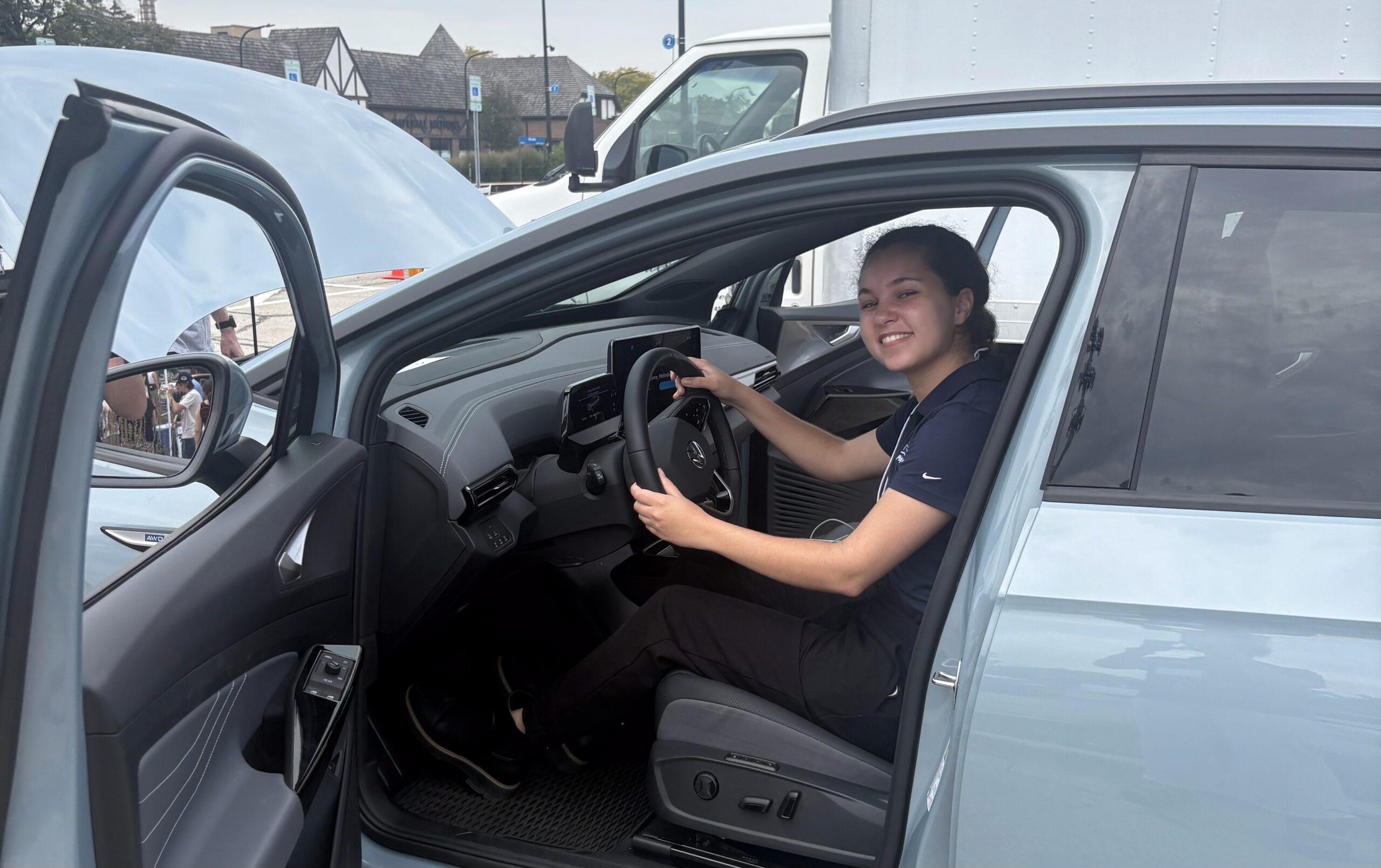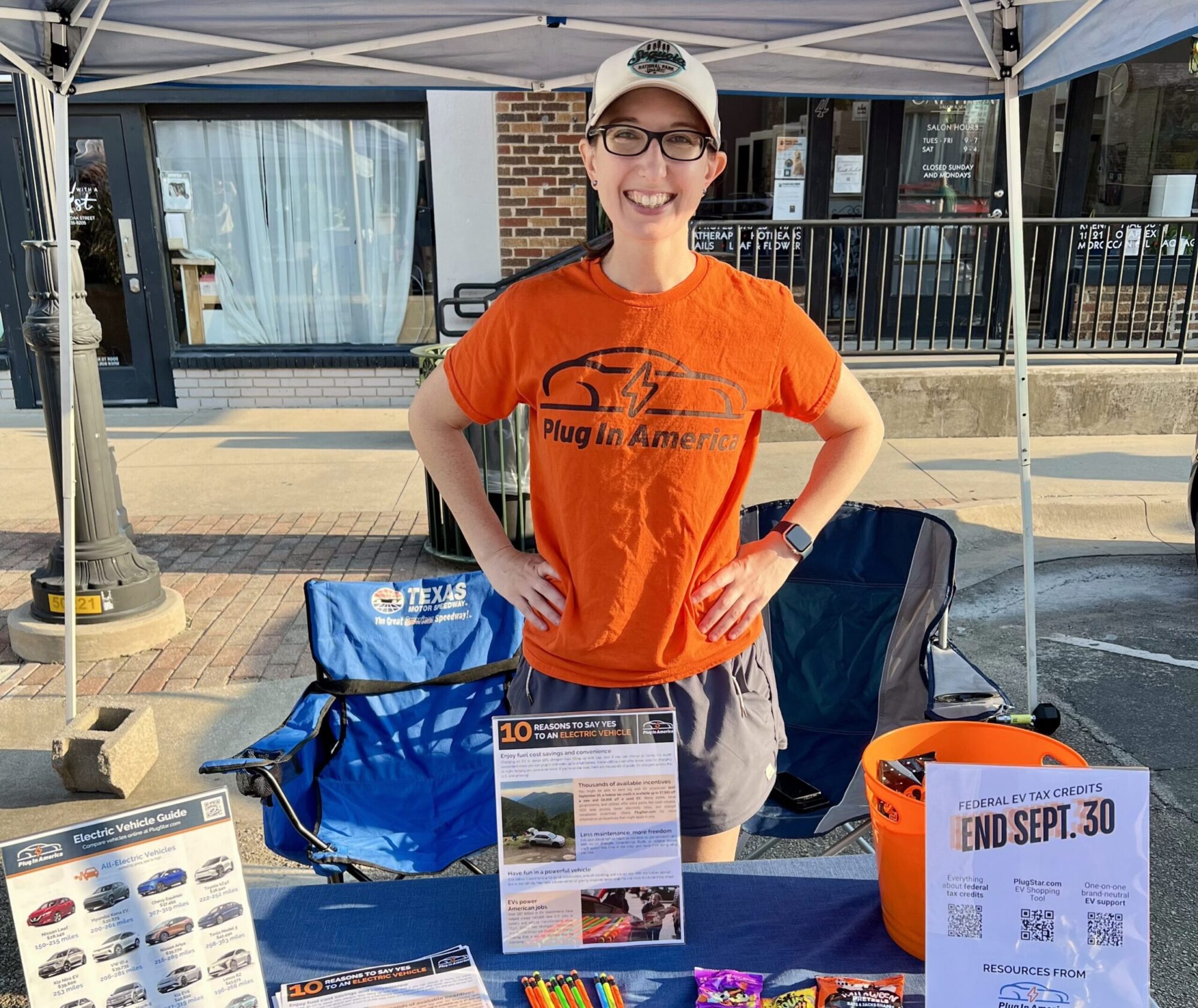 Assembly Bill 475 has already passed both houses of the legislature and now sits on the Governor s desk awaiting his signature. The bill was designed to update and streamline the restrictions for parking in public charging spaces. However, after numerous amendments, AB 475 now hurts more than helps consumers and will not accomplish its intended goal. Plug In America is urging Governor Brown to veto the bill so we can have a chance to get this important issue correct.
Assembly Bill 475 has already passed both houses of the legislature and now sits on the Governor s desk awaiting his signature. The bill was designed to update and streamline the restrictions for parking in public charging spaces. However, after numerous amendments, AB 475 now hurts more than helps consumers and will not accomplish its intended goal. Plug In America is urging Governor Brown to veto the bill so we can have a chance to get this important issue correct.
In 2002, the legislature passed a bill requiring vehicles to have a DMV-issued Zero Emissions Vehicle sticker in order to use public charging spaces. AB 475 was designed to restrict the usage of these spaces from all ZEVs to only those vehicles that could actually use the chargers. But the problem with the current language of the bill is that the DMV decal program has been eliminated. Instead, the bill provides that only “authorized vehicles” may use the spaces if and only if they are “connected for electric charging purposes.”

EVs charging at LAX, courtesy of Mike Sullivan
These clauses carry their own set of problems. In expanding the vehicle code to allow Plug-in Hybrid Electric Vehicles (PHEVs) to use parking spaces, AB 475 only opened up public charging to certain PHEVs, and due to some ambiguity in the definition, potentially excluded many of those on the road today, including the Chevy Volt. The legislature chose to use as a benchmark the emissions standards set by the Air Resources Board to define which vehicles will qualify. But in doing so, the bill confuses emissions standards with a much simpler requirement: which cars can actually use the charging stations.
The other issue arises with the “connected for electric charging purposes” requirement. While addressing a legitimate concern, this restriction stumbles when one considers that it would outlaw the long-successful practice of charger sharing.
EV drivers have long been able to power multiple cars with just one charger. The proposed law would instead severely restrict the capacity of current and future infrastructure, limiting each charger to one space, one car. This also means that the investment in EV charging infrastructure will sharply increase, unnecessarily burdening consumers and our cash-strapped state.
Another problem arises under this requirement: a car is open to fines or even towing if it is not plugged in. Consider a case where you leave your car connected to a charger in a designated EV space. Another EV driver, in need of a charge, pulls into the unmarked space next to you, unplugs your car and plugs his or hers in. That driver is parked perfectly legally, yet you and your car are now left on the hook for violating the terms of AB 475.
The current iteration of AB 475 has clearly failed to match its stated goals, and will hurt rather than help the fast-growing electric vehicle charging infrastructure and the many consumers it was designed to serve. As it stands, the Governor should veto AB 475 and send it back to the legislature with recommendations to return it to a form that will prove effective and practical for electric vehicle drivers. Take action now, and sign Plug In America’s petition asking the governor not to sign AB 475 until it is fixed.

